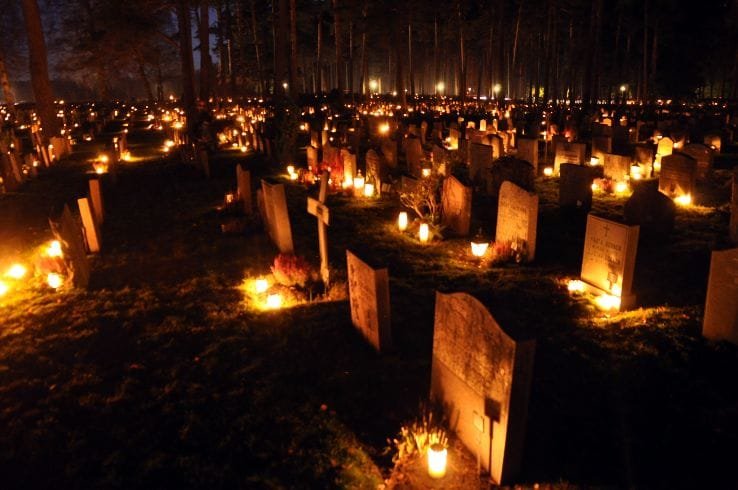The Historical Origins of All Saints’ Day
All Saints’ Day, a significant observance within the Christian tradition, traces its roots back to the early centuries of the Church. Initially, Christians commemorated the martyrdom of saints on specific days throughout the year. However, as the number of recognized martyrs grew, it became increasingly challenging to honor each saint individually. To address this issue, the Church established All Saints’ Day to commemorate all saints, known and unknown, on a single day. This consolidation allowed for a unified celebration that reflected the growing reverence for those who had lived exemplary lives of faith.
The designation of a specific day for All Saints’ Day is attributed to Pope Boniface IV, who, in the year 609 AD, consecrated the Pantheon in Rome to all Christian martyrs. This act is considered one of the earliest formal recognitions of the day, as it marked the beginning of a tradition that would expand and evolve over centuries. Initially celebrated on May 13, the date was later changed to November 1 in the 8th century by Pope Gregory III, perhaps to align the celebration with the ancient Celtic festival of Samhain, which marked the end of the harvest season and honored deceased ancestors.
<pthroughout a=”” ages,=”” all=”” among=”” and=”” as=”” belonging=”” between=”” celebration=”” christian=”” christians,=”” communal=”” community=”” connection=”” continued=”” contributed=”” creating=”” cultural=”” cultures,=”” customs=”” customs,=”” day=”” day,=”” different=”” diverse=”” divine.=”” early=”” earthly=”” embraced=”” enriching=”” expression=”” faith=”” faith.=”” fostered=”” gain=”” gatherings=”” have=”” honoring=”” identity=”” importance=”” in=”” intertwining=”” it=”” journey.
Significance of All Saints’ Day in Christian Faith
All Saints’ Day holds profound spiritual significance within the Christian faith, as it is dedicated to honoring the lives and legacies of saints, both canonical and unrecognized. Celebrated on November 1st, this day serves as a reminder of the communion of saints—a central tenet that emphasizes the interconnectedness of all believers, living and deceased. The day invites Christians to reflect on the virtues exemplified by the saints, encouraging individuals to emulate their faith, piety, and dedication to God. This remembrance fosters a sense of community, bridging the gap between heaven and earth.
Moreover, All Saints’ Day provides an opportunity for introspection and prayer, allowing the faithful to contemplate their spiritual journey and connection to the divine. The observance is not merely a historical reflection but a celebration of holiness and the transformative power of faith. Christian doctrine teaches that saints play an essential role in interceding on behalf of believers, enhancing personal and communal spirituality. This belief underscores the day’s significance as a time to seek inspiration, guidance, and an increase in holiness through the saints’ example.
The theological implications of All Saints’ Day extend into the broader liturgical calendar, embodying a moment of transition from the somber reflections of All Hallows’ Eve to the joyous celebration of the eternal life promised to all believers. The observance emphasizes hope in the resurrection and the eternal life awaiting all Christians. In a world where spiritual struggles persist, All Saints’ Day reinforces the importance of remembrance and reverence, urging believers to honor those who have walked the path of faith before them. Through this celebration, the church recognizes the ongoing connection to the saints as a source of inspiration and strength in the Christian walk.
Traditional Celebrations and Customs Around the World
All Saints’ Day, a celebration honoring all saints and martyrs, is observed in various ways across different cultures, each reflecting unique customs and traditions. In many predominantly Catholic countries, the day begins with solemn church services where the community gathers to remember the deceased. These services often include the lighting of candles, symbolizing the light of the saints illuminating the path to the divine. This practice is particularly prominent in Mexico, where families commemorate the day by creating altars adorned with candles, flowers, and photos of loved ones, embodying the belief in the continuity between the living and the dead.
In Italy, All Saints’ Day, or “Ognissanti,” is marked by visiting cemeteries to pay respects to family members who have passed away. People often bring chrysanthemums, a flower associated with death, to place on graves. This act honors the deceased and reinforces the familial bonds that persist beyond mortality. Similarly, in Spain, families come together to celebrate the day by holding a feast that may include traditional foods such as “torrijas” – sweet, fried bread soaked in milk and eggs – which symbolize the sweetness of eternal life.
In the Philippines, All Saints’ Day is an important occasion for family reunions. Communities come together to clean and beautify gravesites, often spending the night at cemeteries to celebrate the lives of those who have died. This gathering is a vivid reminder of cultural reverence for ancestors and the spiritual connection maintained through rituals. Each of these customs reinforces the idea that, regardless of location, All Saints’ Day serves as a poignant occasion for reflection, remembrance, and celebration, highlighting the diverse ways in which people honor the saints and their departed loved ones.
How to Observe All Saints’ Day Today
Observing All Saints’ Day today can be a meaningful experience that connects individuals and communities with the significant traditions surrounding this revered occasion. One way to engage with the day is through personal reflection. Consider setting aside time to meditate on the lives of saints and loved ones who have made a positive impact in your life. Journaling about their qualities and legacies can provide a deeper appreciation and understanding of the values they embodied.
Community gatherings also play a vital role in modern observances of All Saints’ Day. Churches and local organizations often host events that celebrate the lives of saints, fostering unity and shared remembrance among participants. These gatherings can include candle-lighting ceremonies, communal prayers, or sharing stories about those who have passed away. Engaging with fellow community members allows for a meaningful exchange of memories and honors the enduring influence of saints in contemporary society.
Moreover, volunteerism serves as a contemporary way to observe All Saints’ Day. Many individuals choose to honor the memory of saints and loved ones by participating in charitable activities, such as helping at food banks, visiting nursing homes, or supporting local shelters. Performing acts of kindness reflects the spirit of love and service exemplified by many saints. This act of giving back can reinvigorate the day’s significance while simultaneously addressing pressing social issues.
Lastly, integrating modern practices while respecting tradition can enhance the experience of All Saints’ Day. For families, creating an altar with photographs and mementos of deceased loved ones can serve as a poignant reminder of their lives. Planning special meals that incorporate recipes associated with the day can also unify families and reinforce connections to cultural roots. By balancing contemporary methods with traditional observances, All Saints’ Day can remain relevant, meaningful, and enriching in today’s world.





